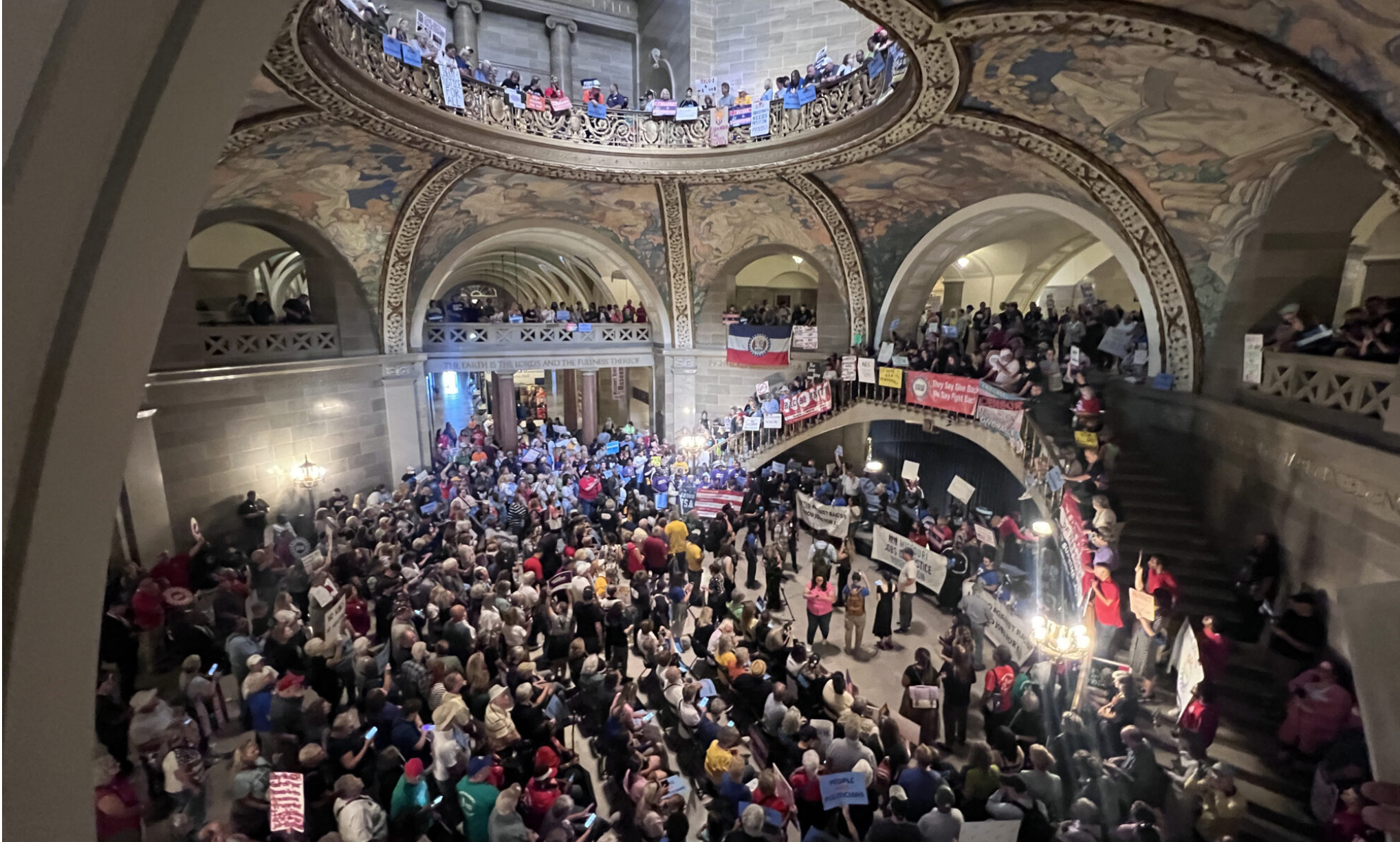
The Monday hearing was to be the first of three this month dealing with the constitutionality of both the new congressional map and whether a petition can force a vote on redistricting
BY: RUDI KELLER
Missouri Independent
A hearing that was to be the first of at least three this month deciding the fate of Missouri’s newly gerrymandered congressional map was postponed Monday due to a judge’s illness.
Cole County Circuit Judge Daniel Green was scheduled to hear the lawsuit filed by People Not Politicians over Secretary of State Denny Hoskins’ rejection of its petitions for a referendum on the map passed in a September special session.
People not Politicians argues that a referendum drive can begin as soon as the General Assembly holds final votes on a bill. Hoskins, the defendant in the case, contends no referendum petition can be approved for circulation until a bill is signed by the governor.
People Not Politicians has 90 days from the end of the legislative session — until Dec. 11 — to turn in at least 106,000 signatures in order to force a vote on the plan. In a news release Monday, the group said it has collected more than 150,000 signatures and has 92,000 names on the petitions rejected by Hoskins.
If People Not Politicians submits the required signatures, it would prevent the new redistricting plan from taking effect until a statewide vote is held. The election would be held in November 2026, unless lawmakers act to set an earlier date.
The referendum poses a real threat to the new map. Of the 27 times a referendum has been placed on the Missouri ballot, voters have rejected actions by the General Assembly all but twice. That includes 1922, when voters rejected a new congressional map drawn by the legislature.
A referendum was last deployed in Missouri seven years ago, when labor unions collected 300,000 signatures in 90 days to put a question on the statewide ballot repealing a GOP-backed right-to-work law.
Green did not set a new hearing date on Monday. The case is one of five pending in various courts over the mid-decade redistricting plan. One case was decided last week and two are scheduled to go to trial later this month.
Missouri’s new congressional districts are part of President Donald Trump’s push for Republican states to revise maps to increase the 219-213 GOP majority in the U.S. House of Representatives. Democrats have countered with gerrymandering plans in states they control, with a vote in California on Tuesday on a plan to deliver up to five seats to Democrats.
In the case decided last week, Cole County Circuit Judge Christopher Limbaugh denied a request from the Missouri NAACP for a ruling that the entire September special session was illegal.
In the lawsuit, the NAACP argued Missouri Gov. Mike Kehoe had exceeded his constitutional authority to call a special session because no new census data was available and changing the majority requirements for constitutional amendments was not a pressing issue demanding immediate attention.
Limbaugh heard arguments in the case on Sept. 15, three days after the session adjourned. On Friday, he denied without comment the request for a temporary restraining order or a preliminary injunction.
The NAACP asked Oct. 1 for an expedited decision, noting that Limbaugh’s ruling would not be the final action in the case.
“No matter how this court rules on the constitutional questions presented, the losing party will seek appellate review,” Nimrod Chapel, an attorney and Missouri NAACP president, wrote in the court filing.
In opposition to the request for a fast ruling, the state argued that the plaintiffs did not have standing to sue and that the courts did not have power to intervene.
“The governor has broad discretion to call a special session, and precedent confirms that courts cannot second-guess the manner in which the governor uses that discretion,” the brief stated.
The cases set to go to trial this month are a Cole County lawsuit challenging the constitutionality of the map approved by lawmakers and a federal lawsuit filed by Attorney General Catherine Hanaway asking that congressional redistricting plans be declared off-limits for referendums.
In the state case, the focus will be on constitutional language directing lawmakers to draw new lines after every census. Opponents are arguing that because the power for redistricting at other times is not expressly granted, it is forbidden. The state is arguing that because it is not expressly forbidden, it is allowed.
That case is scheduled for a trial Nov. 12 before Limbaugh.
The federal case, scheduled for a trial Nov. 25 in St. Louis, asks for an order blocking the referendum. Hanaway argues that the federal constitution makes legislatures responsible for the district lines, subject only to Congressional oversight.
“Defendants therefore have no legal basis to proceed with their referendum,” the state’s petition states. “This court should declare that such a referendum would violate both the U.S. and Missouri Constitutions.”
In the news release sent in advance of Monday’s postponed hearing, People Not Politicians said the delays and attempts to block the referendum in court will fail. The Missouri Supreme Court ruled in 2022 that laws intended to prevent a referendum drive from starting before a petition is certified are unconstitutional.
“The Supreme Court was unambiguous: the people’s right to petition cannot be undermined by bureaucratic delay or political gamesmanship,” said Richard von Glahn, director of the People Not Politicians campaign. “That same principle applies here. The law is on our side, and so are the people of Missouri.”








